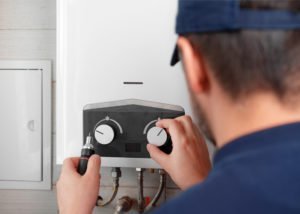Gas water heaters provide our homes with hot water for various needs like bathing, cooking, washing clothes and dishes, etc. Nevertheless, these appliances are not perpetual but will have expiration dates. Homeowners should understand the lifespan of a gas water heater so that they can know when to do maintenance, repair, or replacement. This all encompassing manual provided by Ethical Plumbing will look into what influences the longevity of your water heater and provide information to ensure your hot water needs are met efficiently and cost effectively.
Why is the gas water heater’s lifespan relevant?
Knowing the average lifespan of your gas water heater is essential for several reasons:
- Financial Planning: Knowing when it is time to replace your water heater is important as it assists you to plan towards such an expense
- Energy Efficiency: Older models of water heaters tend to be less energy efficient resulting in higher utility bills
- Avoiding Disruptions: Proper preparation regarding the replacements and repairs helps you avoid sudden disruptions of your schedule due to the sudden breakdowns
- Safety: Water heaters that are older can cause physical harm through gas leaks or water damage
How long does an average gas water heater last?
A gas-water heater would normally last anywhere from 10 to 15 years. This lifespan of a water heater depends on several factors which will be crucial to consider when assessing the condition of them

Factors Determining the life-span of a gas water heater
- Quality of Installation: Ensuring that your water heater is properly installed and maintained by an experienced professional, like what we do here at Ethical Plumbing, can make a huge difference on the lifespan of your equipment
- Water Quality: This kind of water is prone to sediment clogging within the tank, thus causing the reduction of life span and efficiency
- Maintenance: Flushing the water heater and identifying signs of corrosion are some measures that you should perform regularly on the water heater in order to prolong its life
- Anode Rod: The integrity of the sacrificial anode rod that shields the tank against corrosion is a very important determinant in the time of service for the tank
- Usage: The water heater may succumb to more wear and tear with frequent showers and laundry
- Manufacturer and Model: The quality and brand will also be a large factor of the expected lifespan
How You Know Your Gas Water Heater Needs to Be Replaced
The average lifespan gives a good guideline but you still should watch out for specific signs that indicate that your gas water heater has aged and is no longer working properly. Ethical Plumbing recommends keeping an eye out for these warning signals:
- Reduced Hot Water Supply: When it comes to your hot water supply in most cases when it starts being inadequate and may be struggling is when the age of the water heater becomes in question
- Rusty Water: Discolored water when running water may indicate corrosion and can also mean that something is wrong in the tank
- Leaking: You should look out for visible leaks or pools of water around the bottom of the water heater as these could be some signs that there is a problem. Quickly address these matters to avoid a case of water damage
- Strange Noises: Popping, rumbling or hissing sounds are indications of deposits or other internal problems within the storage tank
- Age: It’s highly suggested to plan for a new one in case your water heater is nearing or has already passed its normal life span as this could lead to emergencies
Prolonging the lifespan of your gas water heater
To maximize the life of your gas water heater and minimize the need for untimely replacements, consider the following maintenance tips:
- Regular Flushing: Regularly drain off your tank to remove accumulated debris that lowers efficacy and durability
- Inspect the Anode Rod: Inspect your anode rod approximately every couple of years and replace it if it is seriously corroded
- Professional Maintenance: Ensure that your water heater is serviced annually and maintained in good state by Ethical Plumbing or reliable service provider
- Monitor for Signs: Watch out for the warning signs previously highlighted and take necessary steps immediately
Conclusion
Understanding the average lifespan of a gas heater is essential for any responsible homeowner. They should be conscious about how long on average a water heater operates and what determines it. Ethical Plumbing advises regular preventative checks and watches out for wear-and-tear signals, so that your hot water service does just what it should do-efficiently and safely. For instance, when your water heater gets old and needs replacement, trust professionals like Ethical Plumbing to install an energy-efficient water heater to provide you with enough hot water in future. Ensure you are not caught off-guard by a malfunctioned water heater. Instead, always preempt your needs so that there is no interruption of hot water supply at home.
